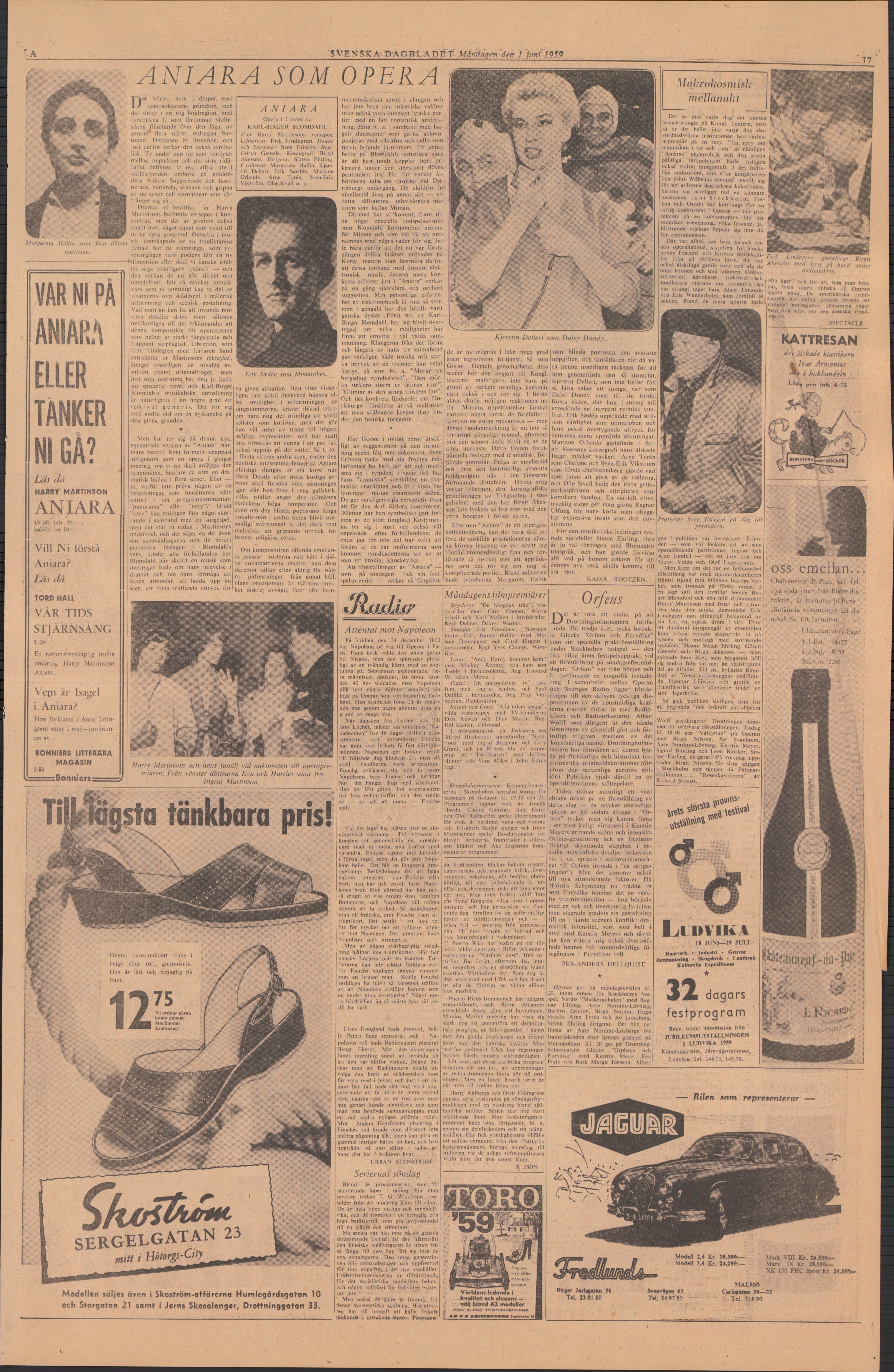
A group of survivors after an apocalyptic catastrophe on Earth travel straight ahead, without goal, in space, still mourning what they lost, and trying to make sense of their existence in a void.

Politics aside, having read quite a lot by both Johnson and Martinson, and at least two or three works by all other laureates worldwide as well, I belong to the party claiming they deserved the honour DESPITE being in the academy.Īniara speaks for itself. It is still a sore chapter in Swedish literary history, and Martinson's dramatic suicide is thought to be directly linked to the fact that he was deeply hurt by the reaction to the Nobel award.

Both were members of Svenska Akademien at the time, and they had to endure harsh criticism for receiving the prize from their own colleagues.

Of all the Nobel Prizes in Literature, the one awarded to Martinson and Johnson in 1974 is probably the most disputed. I actually bought an English translation, second hand but very expensive, because I thought I could read excerpts from it with my students, but in the end, Martinson's language was so much connected to Swedish in my mind that I did not go ahead with the project. It has shaped my relation to Swedish literature more than anything else.īeing a poem, a science fiction post-apocalyptic verse epos, and a deeply disturbing journey into the human condition, it is one of the books I quite often open randomly to enjoy the brilliant Swedish verse. I don't claim to be able to do it now either, but I can't stand the idea of this favourite being left to travel in a void, straight ahead into space without any recognition from me, the grateful reader. Of all Nobels on my shelves, Harry Martinson's Aniara is the one I have reflected on the most, unable to put it into comprehensible context, and to give it an honest and fair evaluation.


 0 kommentar(er)
0 kommentar(er)
